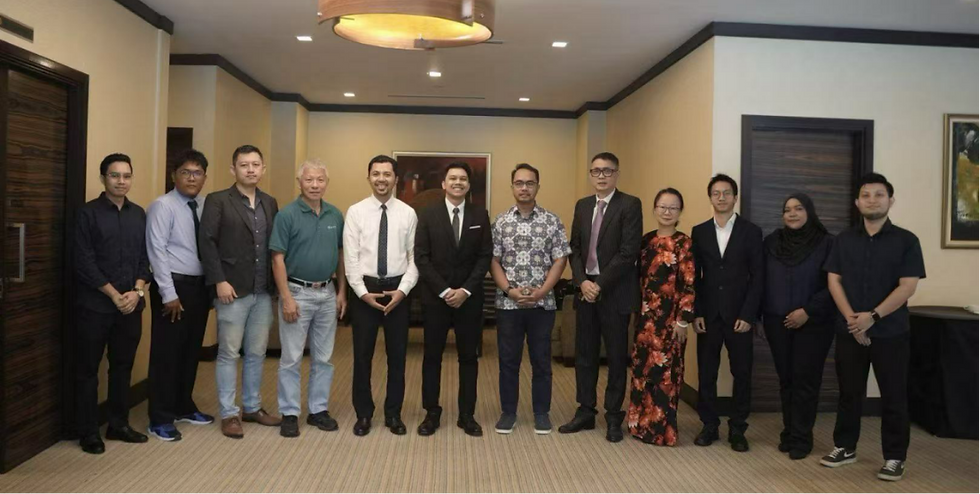Zebrafish Capital partners with Singapore's Aliyah Rizq to jointly establish a halal food manufacturing and export base in China
- Oct 13, 2025
- 3 min read
In the global food industry, the Halal market represents a dynamic and rapidly expanding segment. The global Halal food market is thriving, with its value expected to reach a staggering $2.8 trillion by 2025 and projected to grow to $6.49 trillion by 2034, demonstrating a powerful and sustained growth trajectory .
This expansion is driven by a growing global Muslim population and increasing demand from non-Muslim consumers who associate Halal with stringent standards of safety, quality, and ethical sourcing . From the Middle East to Southeast Asia, "Halal" has evolved beyond a religious dietary law into a universal marker for food integrity and supply chain transparency.
In this context, China is emerging as a pivotal player. The country's domestic Halal food market is valued at over $77 billion in 2024 and is projected to grow at 10.8% annually through 2034, fueled by a sizable Muslim population of over 25 million and supportive government policies in key regions .

To capitalize on this momentum, Aliyah Rizq and Zebrafish Capital officially signed a memorandum of understanding (MOU) to jointly establish a Halal food manufacturing and export base in China. This venture aims to create a sustainable livestock and poultry meat supply chain for the Middle East and Southeast Asian markets.

The project will see Aliyah Rizq establish a Chinese operating entity responsible for sheep breeding, slaughtering, and processing, leveraging its expertise in Halal supply chains . The collaboration will promote the implementation of Halal standards and modern production bases through partnerships with local governments and agricultural platforms.

The core of this cooperation extends beyond production capacity to the co-construction of a credible standard system. The project will fully integrate international Halal certification and digital traceability mechanisms. Every link—from feed and breeding environment to slaughtering technology and cold-chain logistics—will be designed to comply with international standards, ensuring products are verifiable, traceable, and trustworthy .
This initiative addresses a key challenge in China's Halal sector: the historically fragmented industry chain with varying local standards . The collaboration between an international firm like Aliyah Rizq, capital partners, and Chinese entities symbolizes a strategic shift for China's agriculture from a production-focused model to one driven by standardized, internationally-oriented supply.
Relying on China's robust manufacturing system and Singapore's role as an international bridge, the partners will explore a new model of "Made in China + International Certification + Global Market." This framework is designed to channel high-quality food from China into the vast Halal food markets of Southeast Asia, the Middle East, and beyond.
The project has now moved from strategic planning to a substantive stage. The partners are evaluating potential regions in China based on industrial foundation, policy support, and logistics infrastructure, adopting a "pilot + standardized replication" approach. The first pilot base is poised to become a sample project for cross-border food industry cooperation.
This venture illustrates that in the ongoing reshaping of international Halal food standards, China is evolving from being a mere producer to an active participant in co-building rules and trust systems. By using "certification + traceability + export" as a lever, the collaboration aims to transform China's "manufacturing advantages" into "standard advantages and market advantages." This marks a pivotal window of opportunity for Chinese food to reach the international Halal table, opening a new growth curve through local and industrial synergy.





Comments